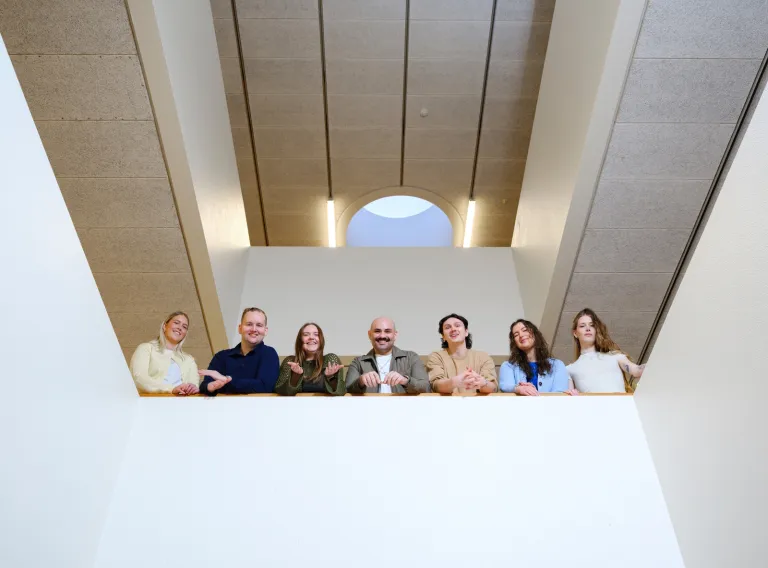
A large group of students are currently finding their feet at the University of Iceland, getting to know both the campus and new people. Some are making connections that will lead to lifelong friendships based on shared classes, group work assignments and student social events. But what impact do friendships formed in the first months at university have on academic achievement? Three academics at the University of Iceland are currently trying to find the answers to this and other questions. They have discovered, for example, that students during the pandemic, when traditional learning on the UI campus was not possible, made significantly fewer ties with their fellow students during their first two semesters than students who had started their studies three years before. Their research has also shown that students with more ties to their peers are less likely to drop out.
Magnús Þór Torfason, professor at the Faculty of Business Administration and now dean of the School of Social Sciences, Margrét Sigrún Sigurðardóttir, professor at the Faculty of Business Administration, and Anna Helga Jónsdóttir, professor of statistics at the Faculty of Physical Sciences, have been working on this study for almost a decade and publishing their findings in Icelandic and international journals over the past few years.
“Management research has shown the importance of personal connections at work, so Magnús and I wondered whether relationships were equally important in higher education. We conducted a study looking at students in one course at the Faculty of Business Administration, which revealed that the higher the number of ties to peers a student had in the course, the higher the grade they were likely to achieve and the less likely they were to drop out,” explains Margrét. She and Magnús published an article about this research in the online journal Netla in 2017 (https://netla.hi.is/tengslanet-nemenda-og-brottfall-ur-haskolanami/).
Pandemic presented an unexpected opportunity
Margrét and Magnús then became interested in expanding this research to look at more programmes at UI. They approached Anna Helga to suggest a collaboration, and the three launched a study in the autumn of 2017, looking at all new students at the School of Social Sciences and the School of Engineering and Natural Sciences.
Almost three years later, the COVID-19 pandemic hit with restrictions and closures across society, including at the University of Iceland. This presented a unique opportunity for the three academics to compare ties in the earlier cohort with this later cohort of students who started the same programme at home in front of their computer screens in the autumn of 2020.
The earlier study showed that social connections, especially friendships, impact success in higher education. “Other studies in other countries have also shown that university students made fewer ties and that their mental wellbeing suffered during the COVID-19 pandemic. This could have had a serious impact on their university careers, because this group doesn’t have the same social resources and peer support as students who started at university either before or after the pandemic,” explains Magnús.
They point out that students in Iceland during the pandemic were in a different position to students in some other countries. Closures in Iceland were not as extensive as in many other places and the UI campus was partially open for the academic year of 2020-2021, meaning that new students did have some opportunities to attend class in person.
Data about the number of ties made in the first months at university
Magnús, Margrét and Anna Helga collected data in September of 2017 and 2020, after the first week of the autumn semester, and in February of 2018 and 2021, when the students were in their second semester. The third and final set of data was collected in May during the participants’ sixth semester, i.e. at the point at which most students were coming to the end of their undergraduate degree.
